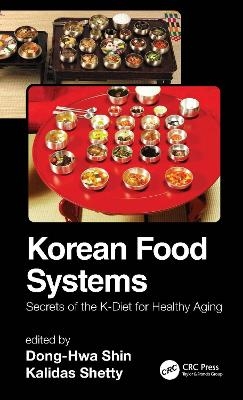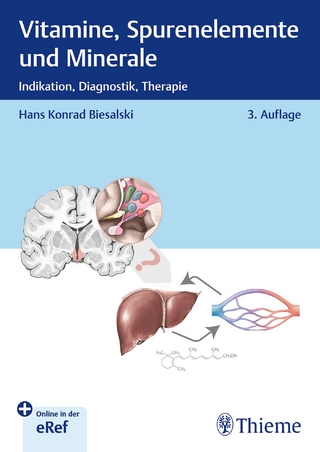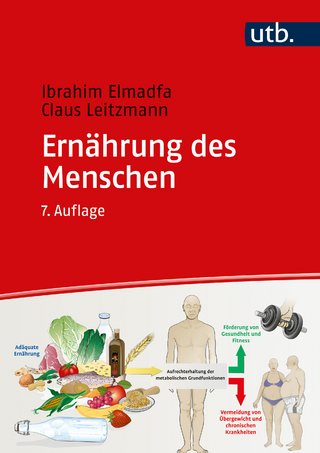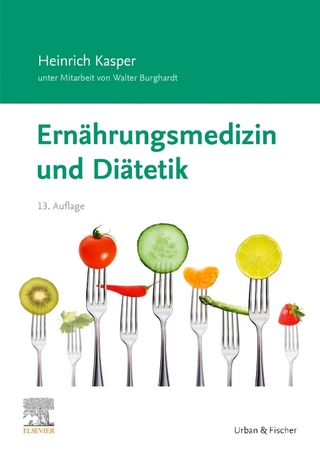
Korean Food Systems
CRC Press (Verlag)
978-1-032-23109-9 (ISBN)
The Republic of Korea (ROK) is projected by 2030 to have the longest living population compared to any nation on earth. A girl born in the ROK in 2030 will live up to 90.8 years on average. What are the reasons for this improvement in longevity?
Among many insights for longevity among the people of the ROK is the diverse Korean ethnic diet with roots in a traditional diet that has been preserved for centuries. Korean Food Systems: Secrets of the K-Diet for Healthy Aging provides an integrated and holistic approach towards the understanding how food systems of the ROK and experiences of the last 60-plus years has been sustained by traditions and ecology integrated with contemporary advances in technology and the economy.
Key Features:
Discusses the rationale and basis of food systems, traditions of healthy eating, and healthy aging in the Korean population and why by 2030 they will be the longest living population on the planet
Reflects on the role of historical, cultural, and traditional food and dietary concepts of Korea and how they have influenced healthy eating habits, contributing to health and longevity
Discusses the relevance of the modern genetic concepts of nutrigenomics and epigenetics, metabolic concepts such as circulation, and food concepts such as fermented and functional foods in advancing healthy food concepts and longevity
Provides insights how a large population can advance an integrated holistic food-based approach to longevity and wellness
As a collaboration between various outstanding authors, the insights from this book can provide global examples to align similar approaches and policies in other countries in different ecologies of planet earth.
Dr. Kalidas Shetty is currently the Associate Vice President for International Partnerships & Collaborations and Founding Director of Global Institute of Food Security and International Agriculture-GIFSIA & Professor of Plant Sciences at North Dakota State University, Fargo, ND, USA. Dr. Shetty's research interests focus on critical role of cellular and metabolic basis of oxygen biology for advancing new innovations in Life Sciences and especially Agricultural and Food Innovations that advance global food security and health in a sustainable environment. His specific research interests focus on scientific, educational and policy strategies to advance climate resilient health-targeted food security solutions including malnutrition and hunger challenges. In particular, he has developed an innovative "climate resilient crops for health" research platform to counter diet-linked non-communicable chronic diseases (NCD). He has published over 225 manuscripts in peer-reviewed journals and over 50 as invited reviews and in conference proceedings with H-Index of 75 on Google Scholar. In 2004, he was selected by US State Department as the inaugural Jefferson Science Fellow to advice on scientific issues as it relates to International Diplomacy and International Development. Dr. Shetty has widely traveled and has been invited to present lectures and seminars in the areas of Food Biology, Climate Resilient Healthy Food Systems for Food Security & Health and Food Safety in over 50 countries in Asia, Europe, Africa, and the Americas. He also has deep commitment to global education capacity building. His current passion is to advance research, education capacity building and policy on "sustainable and ecological basis for climate resilient healthy food systems and food diversity to drive global food security. This vision is based on crops and food diversity, indigenous wisdom, traditional fermentations, and new technology innovations in ethnic and indigenous food systems that incorporates understanding of comparative cellular biochemistry of plant and animal systems and their interactions with microbial systems in diverse ecologies and cultures of earth. This system based integrated model and research platform based on cellular basis of oxygen biology of food plants and plant-microbial interactions is the basis for new and innovative sustainable agriculture and food solutions to advance climate resilient and health-targeted food security. Dong-Hwa Shin, PhD is an emeritus professor of Chonbuk National University in Jeonju, Korea. He has his Ph. D in Food Science & Technology at Dongguk University, Seoul, Korea, He has 18 years’ experience in food research field at Food Research Institute in AFDC which is first Korean government supported food research organization. At this institute he carried out many industries-oriented research and applied research. After working at the institute, he transferred to Chonbuk National University in Dept. of Food Science & Technology and served for 22 years. During this time, he published 350 research papers, 15 patents and 23 books. He managed a Regional Research Center (RRC) for supporting food industry in the region which was fully supported by Korean government for 10 years. His major field is food fermentation, especially soybean and vegetable-based fermentation. Based on his research he transferred 30 relevant techniques to the related industries to be commercialized. He had served as advisor of different Governmental organizations and private food manufacturing companies including CJ and Nongshim, which are the biggest companies in Korea. He was a UNDP/FAO consultant for food industry development at Southeast Asian countries (1983). He is a member of Korean Academy of Science & Technology (KAST), the president of Korean Society of Food Science Technology (2002), President of Korean Society of Food Hygiene and Safety, President of Korean Association of Food Sanitation (2004-2016). and President of Food Safety Association. At present he is the president of Korean Council for Sunchang Soybean Fermentation, the president of Korea Food Industry Promotion Forum, and running Shindonghwa Food Research Institute as Director.
Introduction. Chapter 1: Korean Ethnic Food Provides a New Paradigm for Healthy Longevity. Chapter 2: Korean Long Living People: What and How to Eat to Live. Chapter 3: Koreans Select Food Aligned and Suitable for their Constitution. Chapter 4: The Answer for Healthy Life is Korean Traditional Diet. Chapter 5: Korean Fermented Foods for Healthier Longevity. Chapter 6: Food Alters Genes: Understanding Nutrigenomics and Epigenetics. Chapter 7: Good Blood Circulation is Vital to Your Health. Chapter 8: Health Functional Food Market is the Trend.
| Erscheinungsdatum | 01.09.2022 |
|---|---|
| Zusatzinfo | 22 Tables, black and white; 30 Line drawings, black and white; 65 Halftones, black and white; 95 Illustrations, black and white |
| Verlagsort | London |
| Sprache | englisch |
| Maße | 156 x 234 mm |
| Gewicht | 1180 g |
| Themenwelt | Medizin / Pharmazie ► Gesundheitsfachberufe ► Diätassistenz / Ernährungsberatung |
| Naturwissenschaften ► Biologie | |
| Technik ► Lebensmitteltechnologie | |
| ISBN-10 | 1-032-23109-2 / 1032231092 |
| ISBN-13 | 978-1-032-23109-9 / 9781032231099 |
| Zustand | Neuware |
| Haben Sie eine Frage zum Produkt? |
aus dem Bereich


